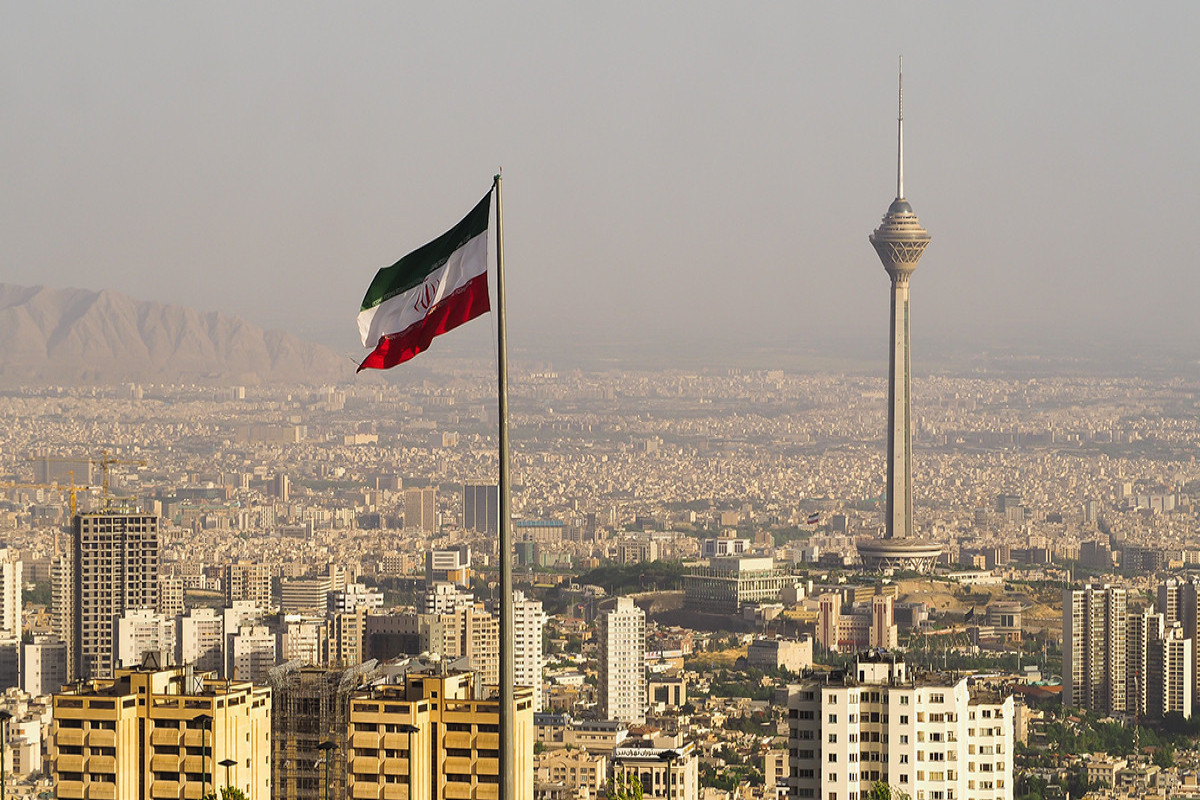As reported, Azerbaijan’s President Ilham Aliyev has signed an order on the submission of the draft Referendum Act “On amendments to the Constitution of the Republic of Azerbaijan” to the Constitutional Court for consideration. At the same time, the draft Referendum Act was also published.
After some amendments in the text of Referendum Act made by the Constitutional Court, Azerbaijani President signed an order #2241 that the draft Referendum Act will be put to a referendum on September 26, 2016.
Remind that this is the third amendment to the Constitution since 1995. The first amendment was made on August 24, 2002 (31 amendments to 22 articles) and the second was made in March 15, 2009 (41 amendments to 29 articles).
Current Referendum Act consists of 29 articles.
Generally, the amendments aim to strengthen the successes of the country achieved as a result of socio-economic, legal reforms since gaining the independence, strengthen legal basis of obeying the legal norms by directly applying in the constitution. As in previous amendments, practice of the developed countries has also been considered while preparing the currency amendments. Moreover, provision of sustainability of Azerbaijan’s specific development model and correct selection of more successful management model for the country have been targeted and strengthening of ground of the stable state building and its protection from illegal interventions have been aimed.
Commonly, the amendments may be divided into three blocs:
Bloc I envisages institutional changes in the structure of executive power.
Bloc II means terminological clarification in the text of the constitution.
Bloc III touches upon the strengthening of the ensuring of human rights and freedom.
Institutional changes in the structure of the executive power make creation of vice-presidents institutions who are appointed by the President. Necessity for creation of this institution is manifesting itself in connection with the start of economic reforms in the recent years.
It’s known that all reforms have been started by President or at his initiative. Therefore, questions have appeared on role and functions of the Cabinet of Ministers regarding conduction of reforms.
The issue is not whether or not the Cabinet of Ministers works efficiently, but the institutional essence of this body which is not able to take drastic measures.
Along with the President, half-presidential administration system which implies the existence of the Cabinet of Ministers as an independent executive authority remains in Azerbaijan too, as it does in other former Soviet republics
In the USSR in the 80s of the last century, this management model was introduced by Mikhail Gorbachev. According to him, in a collapsed, crumbling condition of the economy, the Cabinet of Ministers has to bear the responsibility, so that the USSR president would no longer be responsible for the chaos.
At present, the situation is quite different. The radical economic reforms put forward by the President himself, and the President is ready to take responsibility for their implementation.
The Cabinet of Ministers’ mechanism of decision-making is regulated in an intricate way. Prior to being signed by the Prime Minister, each decision of the Cabinet of Ministers should be given a visa by its members. As a result, important decisions in some cases were delayed for years and therefore the Cabinet of Ministers could not become a locomotive of economic reforms in the country.
The establishment of the vice-president will allow controlling the implementation of presidential decrees and orders as well as implementing economic reforms at a specialized level.
It should be noted that the changes in the executive branch of the government do not only affect the status of other branches, even in the line of duty during the period of the President's Council of Ministers, giving authority to the vice-president shall be without prejudice to the rule. In other words, there are no amendments to the Cabinet of Ministers’ status of higher executive authority under president in part II of Article 114 of the Constitution.
The country's constitution and its amendments are usually adopted in consideration of the country's socio-political, social, economic and other realities that are of great importance as well as factors relating to further development.
Having been able to take its rightful place in the international arena in the years of independence, the important achievements of the Azerbaijani economy is more closely integrated into the global economy by taking advantage of an intensive cooperation, but at the same time it is becoming increasingly vulnerable to global economic shocks. The economic and financial crises that occurred in the world economy during the past two decades as well as the necessity of economic diversification often led to the taking of radical measures in this area and bringing forward of people who undertake to implement these decisions.
The fight against these crises shows that countries with state administration system that is able to make abrupt and often radical decisions manage to escape the crises unaffected.
Amendments offered to the Constitution in that part also arise from this reality and is directed to strengthen the country’s positions in the world economy.
According to the Article #105.1, whenever the President of the Azerbaijan Republic resigns from his post ahead of time, extraordinary elections of the President of the Azerbaijan Republic are held within three months. In such case, until new President of the Azerbaijan Republic is elected, the Prime-Minister of Azerbaijan Republic will carry out powers of the President of the Azerbaijan Republic.
According to the Article #105.1, whenever the President of the Azerbaijan Republic resigns from his post ahead of time, extraordinary presidential elections are held within three months. However, according to the Election Code, next presidential elections should be held within sixty days and in this case, holding of the extraordinary presidential elections within three months is unexplainable.
Substitution of the Prime Minister or chairman of the Parliament by Vice-President appointed by the President to carry out powers of the president when the President is unable to carry out power directly arises from the draft Referendum Act. These powers of the other vice-presidents don’t directly arise from the Constitution. According to the draft Referendum Act, these powers of the other vice-president are set by President. Of course, all of these depend on these persons whether or not they have ability of management and organizational, represent the state and country, understand geopolitical situation and conduct foreign policy.
The articles #24 and 25 of the draft Referendum Act (article #106-1) have been edited accordingly to the articles #123 and 108 of the Constitution. As can be seen, immunity of the vice-president is equal to the immunity of the Prime Minister.
Maintenance of the vice president accords with the maintenance of the president when he is in power. So, maintenance of the former presidents according to the Constitution does not concern the vice-presidents.
According to abovementioned amendments, the institution of vice-president only serves the improved management of the Presidential Administration when the president is in power. This institution operates without damaging the principles of separation of powers and touching the status of Prime Minister.
In order to involve younger, educated manager in carrying out the state power, the age limit is offered to be eliminated. So, currently, only over 30-year-old persons may be a member of the Cabinet of Ministers.
The Constitution of Azerbaijan Republic does not include the measures to be taken by the parliament in cases of impossibility to carry out its powers arising from the Constitution. However, it’s possible to show examples about impossibility to carry out parliament’s powers arising from the Constitution. For example, the President submitted a draft law on “Publishing of court decision” to the parliament in 2009 in order to provide the transparency in the courts. However, despite the request to put the draft law to a vote within two months was identified, that draft law was neither rejected nor considered in the parliament.
According to offered amendments, the president is empowered to dissolve the parliament in the following cases:
- Azerbaijani parliament’s same convocation shows disloyalty to the Cabinet of Ministers twice a year or does not appoint the candidates for membership to constitutional Court, Supreme court and Management Board of the Central Bankin the necessary number after submission by Azerbaijani president twice;
- Azerbaijani parliament does not fulfil the duties provided in the articles #94 (General rules established by Milli Majlis of the Azerbaijan Republic), and #95 (Competence of Milli Majlis of the Azerbaijan Republic), #96.2 (Drafts of laws or decrees submitted by the subjects provided in the Constitution for consideration of Milli Majlis as legislative initiative, are put to the vote as they are), #96.3 (Changes to such laws or decisions can be made with the consent of the subject body enjoying the right of legislative initiative), #96.4 (Drafts of laws or decrees submitted by the subjects provided in the Constitution for consideration of Milli Majlis as legislative initiative, are put to the vote in Milli Majlis within two months) and #96.5 (If draft of the law or decree has been declared by the subjects provided in the Constitution urgent, then above specified term shall constitute 20 days), #97 (Drafts of the laws are submitted to the President of the Azerbaijan Republic for signing within 14 days from the day of their acceptance and urgent draft of the law is submitted to the President of the Azerbaijan Republic for signing within 24 hours from the moment of its acceptance) due to insoluble reasons.
Possibility of dissolving the parliament exists in many European countries. For example, constitutions of France, Italy, Germany, Czech Republic and Hungary contain grounds and mechanisms to dissolve the parliament.
Institutional reforms also touched upon the structure of the armed forces.
According to article #9.1 and 9.3, In order to provide its safety and defend itself the Azerbaijan Republic establishes Military forces and other military troops. The President of the Azerbaijan Republic is the Supreme Commander-in-Chief of Military Forces of the Azerbaijan Republic.
Currently, as a Supreme Commander-in-Chief, Azerbaijani President’s powers to directly order to National Guard Command, Internal Troops Command and officers of armed forces have not identified. In this case, such right of the president on other armed forces is still remaining undefined in the Constitution and other armed forces are subject to Azerbaijan’s President as a Supreme Executive Power.
The new proposed edition of this article envisages that the Armed Forces are comprised of the Azerbaijani Army and other military formations. By this means, the President is also considered to be the Supreme Commander-in-Chief of the military formations, which corresponds to the NATO standards.
The amendment made to article #36.2 arises from the amendment made to article #9.
The next amendment touches on the terminology used in the Constitution.
For example, the term “nationality” in the article #25 (Right for equality) of the Constitution is offered to be replaced by “ethnicity”.
This amendment arises from usage of term “nationality” in another meaning in the international law - equivalent to the term “state”. In international law, “nation” means a people organized in the form of state. This notion in this particular meaning is used in the name of the United Nations.
The large number of proposed amendments to the Constitution has to do with human rights. The amendment to article #24 is about the principle of human dignity.
This principle is also being developed in the following provisions of the Referendum Act.
Parts I and IV in the following context are being proposed to article #68 (Right for compensation of losses):
- Everyone has the right to the state bodies treating them
without tyranny
IV. The state and civil servants are responsible for damage caused to human rights and freedoms in the wake of the offences or inactivity by civil servants and their non-provision.
In order for the analogous provision to be applied to the municipalities article #1461 in the following edition is proposed to be made t the Constitution:
Article #1461. Responsibility of municipalities
The municipalities and municipal servants are responsible for damage caused to human rights and freedoms in the wake of the offences or inactivity by municipal servants and their non-provision.
P7.
VI. It’s not allowed to access to information reserves in e-form or on paper to get information about the third persons excluding cases specified by legislation.
VII. The information technologies are not allowed to be used to publicize information about a person’s private life, including belief, religious and ethnicity, excluding person’s consent, processing of anonymous statistical information not allowing discrimination and other cases prescribed by legislation.
VIII. Circle, as well as processing, collection, transferring, usage and protection of the personal information are determined by the law.
It must be noted that one of the important issues in ensuring of right for personal immunity is related to protection of collected, processed and transferred information about person’s private and family life.
Therefore, in order to regulate relations on protection of personal information, a Law of the Republic of Azerbaijan on “Personal Data” was adopted on May 11, 2010.
This law envisages obligations about protection of data by all owners and operators and users with right to access to this data since they have been collected.
The law also regulates the cases on bringing of the persons, who violated the requirement of the legislation, to justice.
So, the chapter #30 of the Criminal Code of Azerbaijan considers responsibility for illegal access to electron-computer information. At the same time, acts of illegal collecting of information on private life, which are personal or family secrets of the personal is prescribed as criminal acts in the article #156 of the Criminal Code“.
According to the amendment to the article #36 (Right for strikes) of the Constitution, it is offered to ban lockout (temporary work stoppage or denial of employment initiated by the management of a company during a labor dispute).
It must be noted that according to the article #284 of the Labour Code, there are allowed cases with sufficient limitations regarding declaration of lockout by an employer. Moreover, the article #285 envisages employees’ rights in cases of lockout and upon the request of employees, the court shall decide if a lockout is legal and declared in accordance with law.
This right was identified in the European Social Charter dated May 3, 1996. According to article #6.4 of the European Social Charter, workers and employers have right to collective action in cases of conflicts of interest, including the right to strike, by being subject to obligations that might arise out of collective agreements previously entered into.
In the international law, there are provisions that employees may benefit from certain rights on lockout.
It’s also offered to amend the article #47.3 (Freedom of thought and speech) of the Constitution to prohibit acts like propaganda causing hostility.
Article #49 (Freedom of meetings) is offered to be amended that everyone has the right, having notified respective governmental bodies in advance, peacefully and without arms, meet with other people, organize meetings, demonstrations, processions, place pickets without violating public rules and public morality. The limitations for freedom of meetings arise from the European Convention for the Protection of Human Rights and Fundamental Freedoms.
Amendments on determination of cases for loss of citizenship are offered to be made to eth article #53.
In the article #57.1, it is offered to limit the right of servicemen to appeal collectively. So, collective appeal of the personnel to the commander may probably be considered as a rebellion. Many countries, for instance Germany and Spain have applied such limitation.
According to the article #58.4 (Right for joining), activity of unions intended for forcible overthrow of legal state power on the whole territory of the Azerbaijan Republic or on a part thereof is prohibited. Activity of unions which violates the Constitution and laws might be stopped by decision of law court. It is offered to prohibit unions whit other proposals and using criminal methods. Such prohibitions are provided in the Constitution of Germany and other countries.
In the article #59 (Right for business activity) of the Constitution, it is proposed to limit the intervention by state in the free business activity.
In 2005, a law "on Administrative Procedure" was adopted and protection of human rights administratively is developing. In 2016, Councils of Appeal were created in all executive powers, including the Presidential Administration. Therefore, the article #60 is offered in the following edition:
Article 60. Administrative and judicial guarantee of rights and freedoms
- Administrative and judicial protection of the rights and freedoms of everybody is guaranteed.
- Everyone has right to have unbiased approach to his/her case and consideration of the case in the administrative and court proceeding in a reasonable time.
- Everyone has the right to be heard in administrative and court proceedings.
- Everyone may appeal in administrative procedure or to the law court regarding activity and inactivity of the state bodies, political parties, legal entities, municipalities, and officials.”
In order to prohibit more limitation of rights and liberties, it is purposed to add a provision in the following context to the article #71 of the Constitution:
“Limitation of rights and liberties must be balanced with the result expected by the state”.
Arising from the reality that 3 of every 5 years are related to elections, it’s offered to extend the presidency period from 5-year to 7-year according to the amendment to the article #101. Such practice exists in other countries too (Italy – 7 years, France – 7 years, till 2000, Austria and Finland – 6 years).
According to another amendment offered to that article, Azerbaijani President is considered to address to voters for vote of confidence.
APA Analytical Centre




 ANALYSIS'>
ANALYSIS'>


